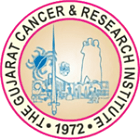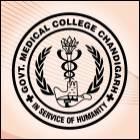- Home
- Courses
- Predictors
- Packages
- About
- Login
- Contact
- Near NRR Hospital, Thammenahalli Village, Bengaluru, Karnataka 560 090
- +91 8904151144
- cgmanagement00@gmail.com
Content Writer: Shubham S Nimje
Published on: Tue Jan 09 2024Updated on: Wed Jan 24 2024
Introduction: The journey toward becoming a medical professional takes various paths, and one of the distinguished routes is through the Doctor of Medicine (MD) degree. Regarded as an advanced academic pursuit in the field of medicine, MD programs offer specialized education, extensive clinical training, and opportunities for in-depth research. This comprehensive guide aims to illuminate the MD landscape, encompassing its essence, admission criteria, specializations, colleges, career prospects, and more.
The Doctor of Medicine (MD) is a postgraduate medical degree that emphasizes advanced clinical training, specialized knowledge, and research in various medical disciplines. It is distinct from the Bachelor of Medicine, Bachelor of Surgery (MBBS) as it provides deeper insights into specific medical fields.
Aspiring medical professionals seeking advanced clinical training, specialized expertise in specific medical domains, and those passionate about contributing to healthcare through research often opt for MD programs.
Candidates for MD programs typically need an MBBS degree or equivalent qualification from a recognized institution. The eligibility criteria may vary based on the specialization and institution.
The admission process for MD programs often includes application submissions, interviews, and assessments of academic records and professional experiences. Different institutions may have specific admission criteria and procedures.
Various entrance exams like NEET PG (National Eligibility cum Entrance Test for Postgraduate), AIIMS PG, and state-level PG medical entrance exams serve as gateways to MD programs in India.
MD programs offer a range of specializations, allowing students to focus on specific areas of medicine. Some popular specializations include MD in Medicine, Pathology, Pediatrics, Psychiatry, Radiology, Dermatology, and more.
All the specialties in MD (Doctor of Medicine) have been listed in the table below.
| Aerospace Medicine | Marine Medicine |
| Anatomy | Medical Genetics |
| Anesthesiology | Microbiology |
| Biochemistry | Nuclear medicine |
| Biophysics | Pediatrics |
| Community medicine | Palliative Medicine |
| Dermatology, Venereology & Leprosy | Pathology |
| Emergency Medicine | Pharmacology |
| Family Medicine | Psychiatry |
| Forensic Medicine | Physical Medicine & Rehabilitation |
| General Medicine | Physiology |
| Radiotherapy | Infectious Diseases |
| Respiratory Medicine | Tropical Medicine |
| Sports Medicine | Hospital Administration |
| Immunohematology and Blood transfusion | Radio diagnosis |
The MD curriculum varies according to the chosen specialization but generally includes advanced coursework, clinical rotations, seminars, and research components tailored to the specific medical field.
Salaries for MD graduates vary significantly based on specialization, experience, and geographic location. However, MD holders generally command higher salaries compared to MBBS graduates due to their specialized skills and expertise.
Many medical boards or institutions require MD graduates to engage in Continuing Medical Education (CME) to stay updated with advancements in their field. CME programs offer workshops, seminars, and courses that contribute to ongoing professional development.
Following an MD degree, some graduates pursue fellowship programs to gain specialized training in specific areas like Oncology, Cardiology, Gastroenterology, etc. These programs provide advanced clinical experience and expertise in niche medical disciplines.
MD programs integrate the use of cutting-edge diagnostic tools and technologies, such as MRI, CT scans, genetic sequencing, and other advanced imaging techniques, enabling students to understand and utilize modern medical technologies effectively.
The rise of telemedicine and e-health platforms has influenced MD education, with curricula incorporating training in remote patient care, digital health records, and teleconsultation, preparing graduates for evolving healthcare practices.
MD programs emphasize the importance of ethical practices in medicine, training students in patient rights, informed consent, confidentiality, and ethical decision-making, ensuring that patient well-being remains at the forefront of medical practice.
MD education emphasizes a patient-centered approach, focusing on holistic care that considers not just the medical condition but also the patient’s emotional, psychological, and social well-being.
MD programs increasingly incorporate global health perspectives, raising awareness about healthcare disparities, infectious diseases, public health issues, and promoting initiatives to address these challenges on a global scale.
Many MD graduates participate in medical missions or volunteer programs, contributing their skills to underserved communities or regions affected by natural disasters or humanitarian crises.
MD programs regularly update their curriculum to align with the evolving healthcare landscape, incorporating new medical discoveries, treatment modalities, and healthcare policies.
MD programs often encourage interprofessional education, fostering collaboration between medical professionals, nurses, pharmacists, and other healthcare providers to improve patient outcomes through multidisciplinary approaches.
The future of medicine might witness a shift towards personalized medicine, tailoring treatments based on an individual’s genetic makeup and specific health characteristics, requiring MD graduates to adapt to these advancements.
The integration of Artificial Intelligence (AI) in diagnostics, treatment planning, and patient care might become more prevalent, requiring MD professionals to navigate and utilize AI tools effectively.





Copyright © 2023 Career Guidance Management
Design and Developed by CGM